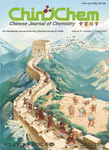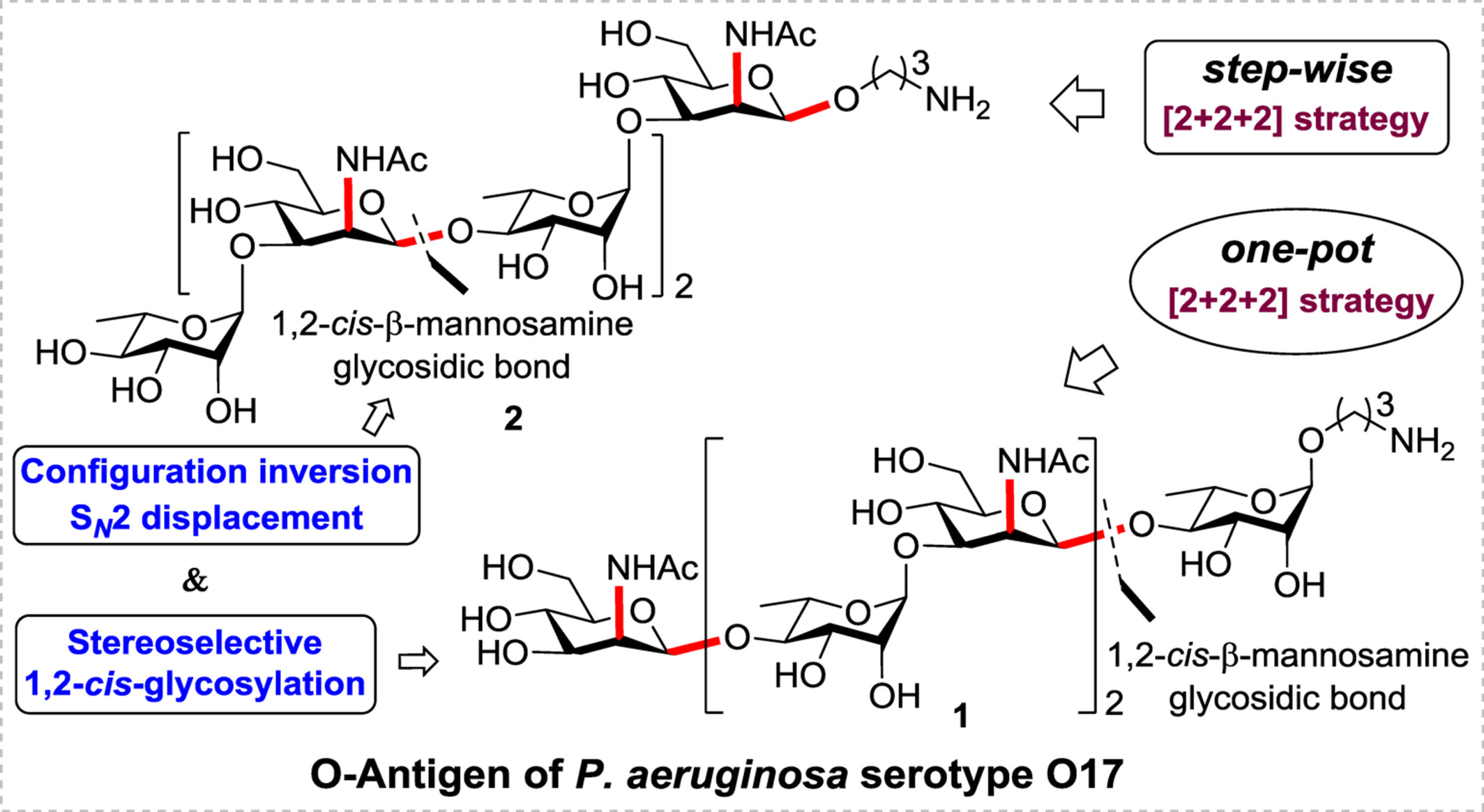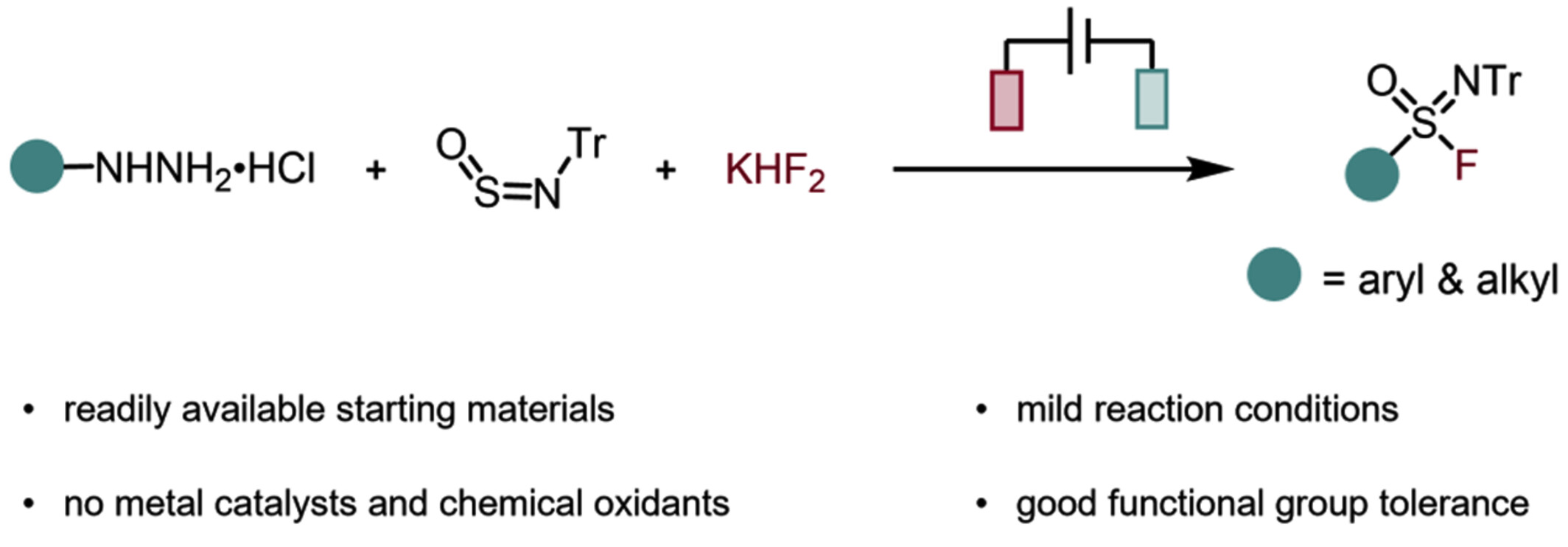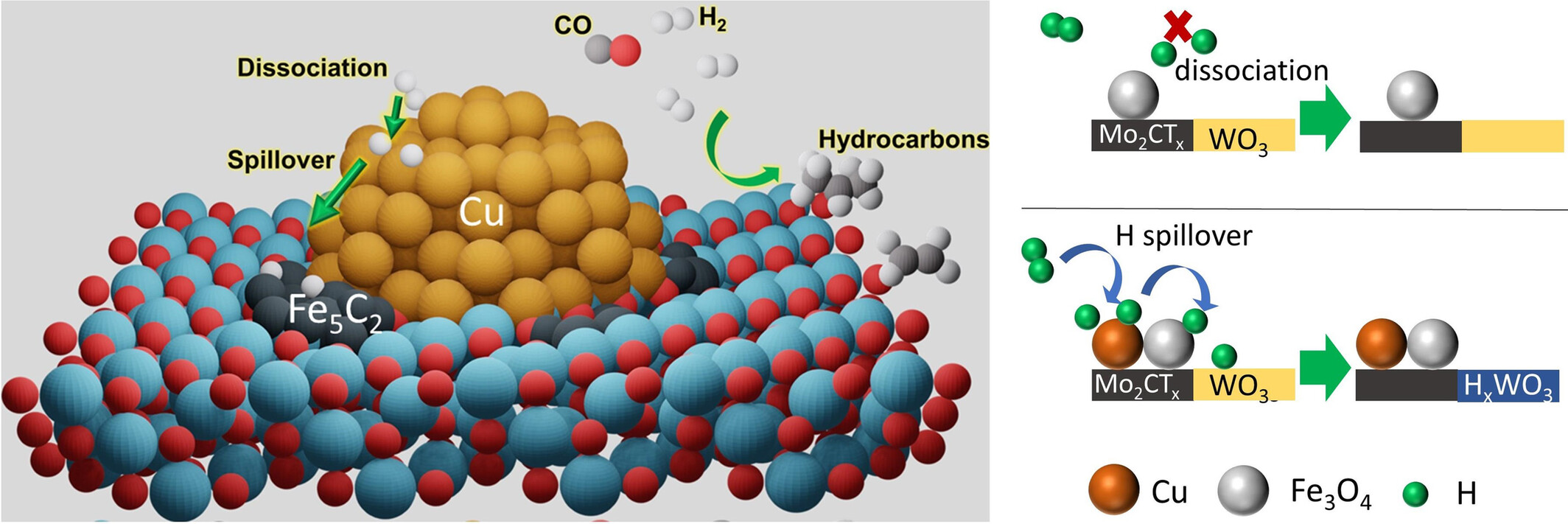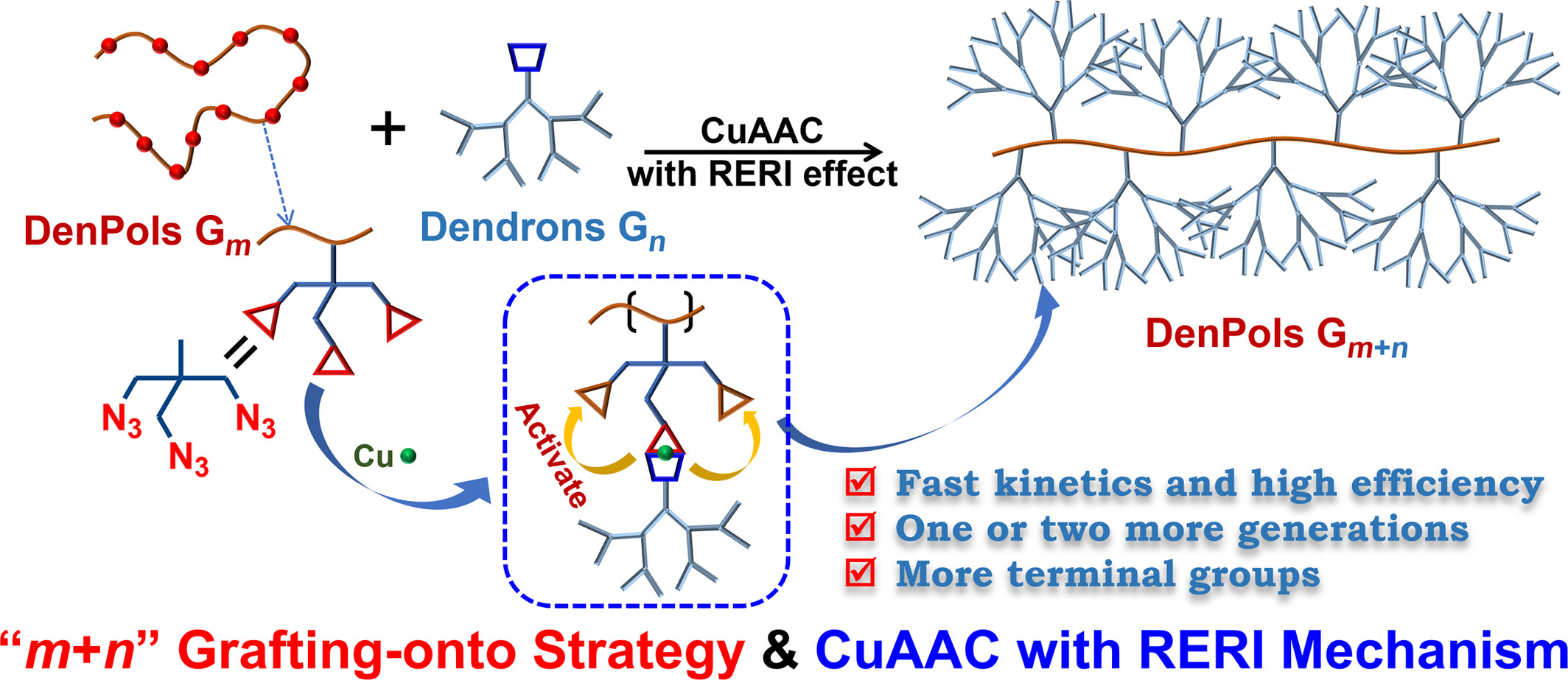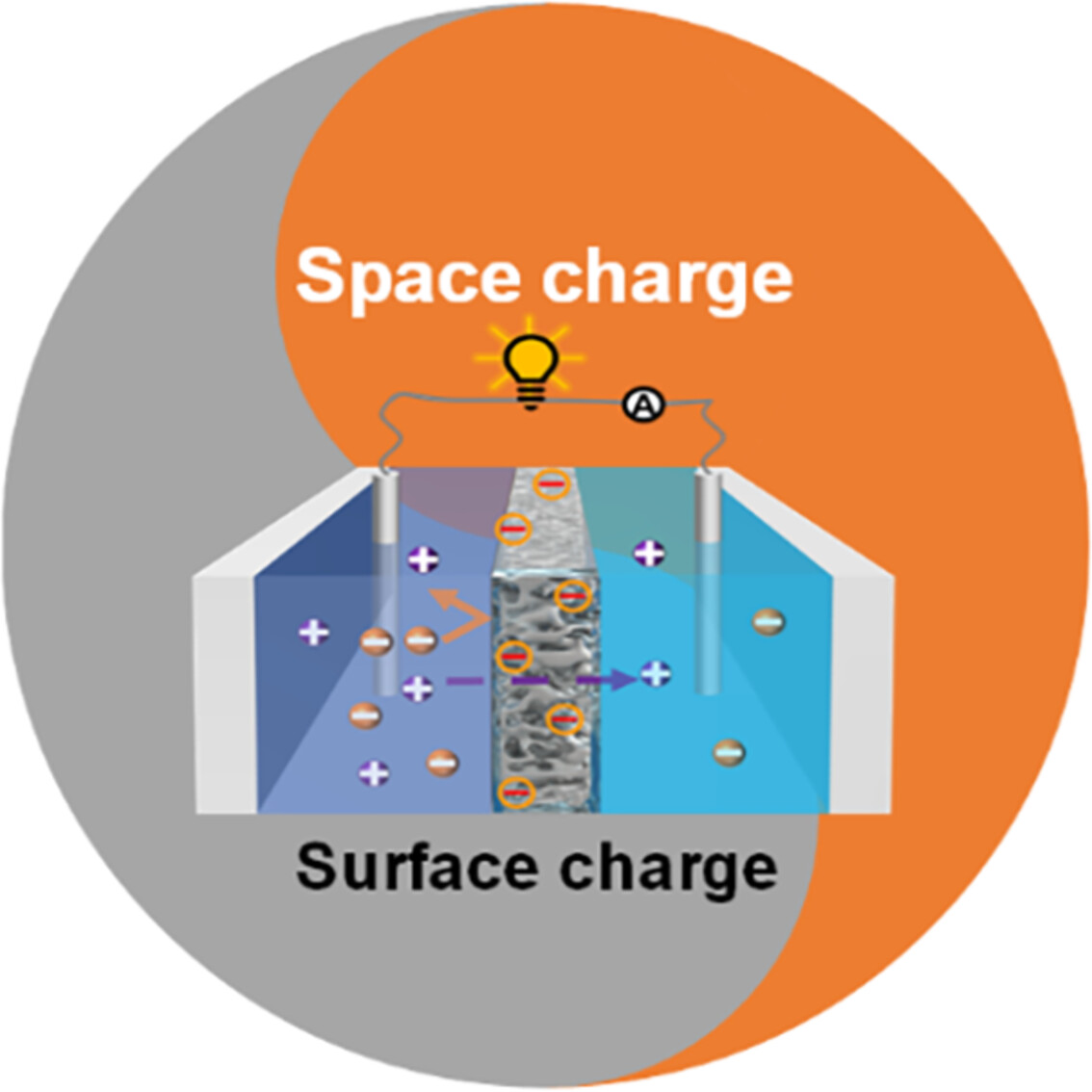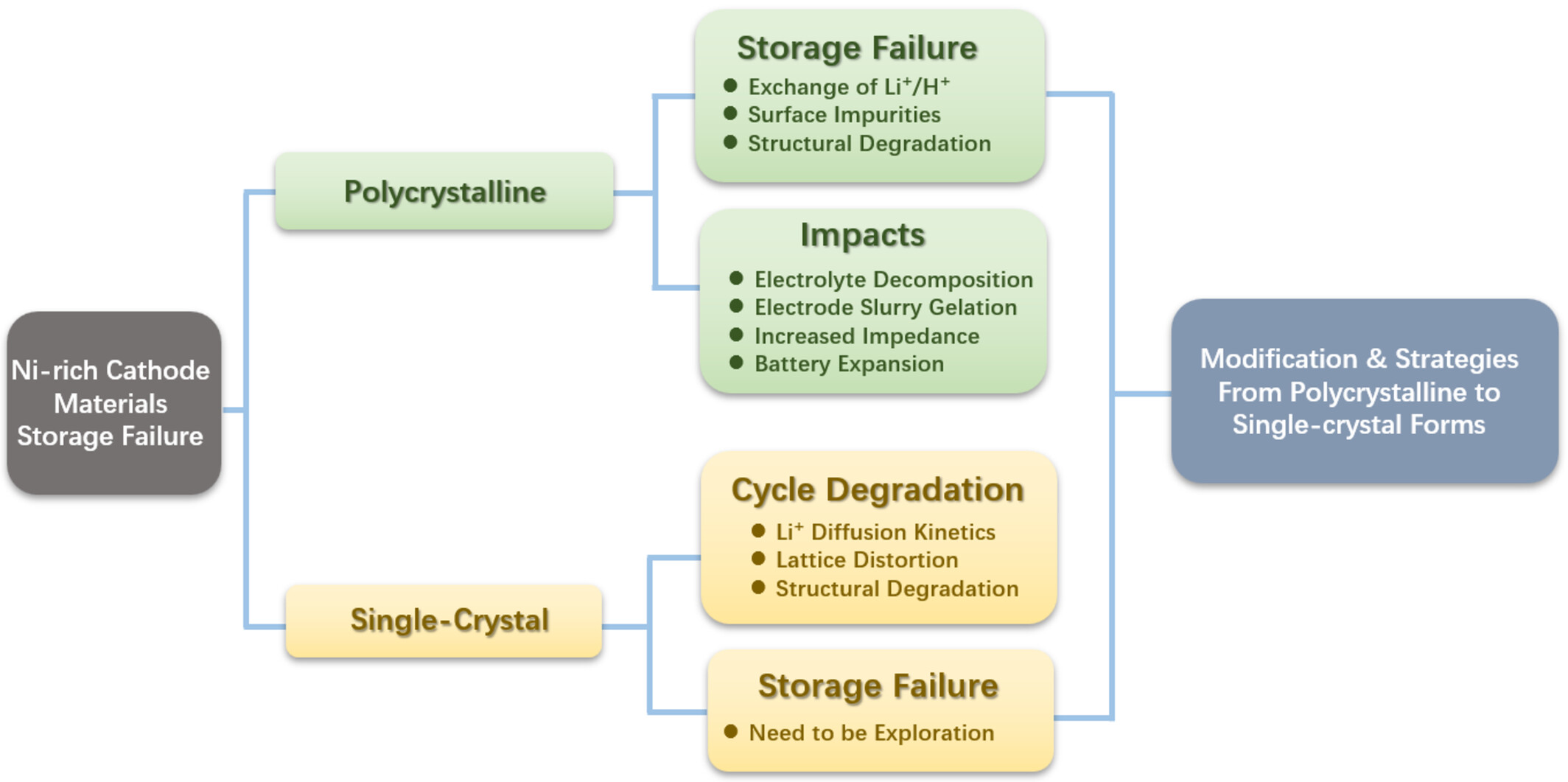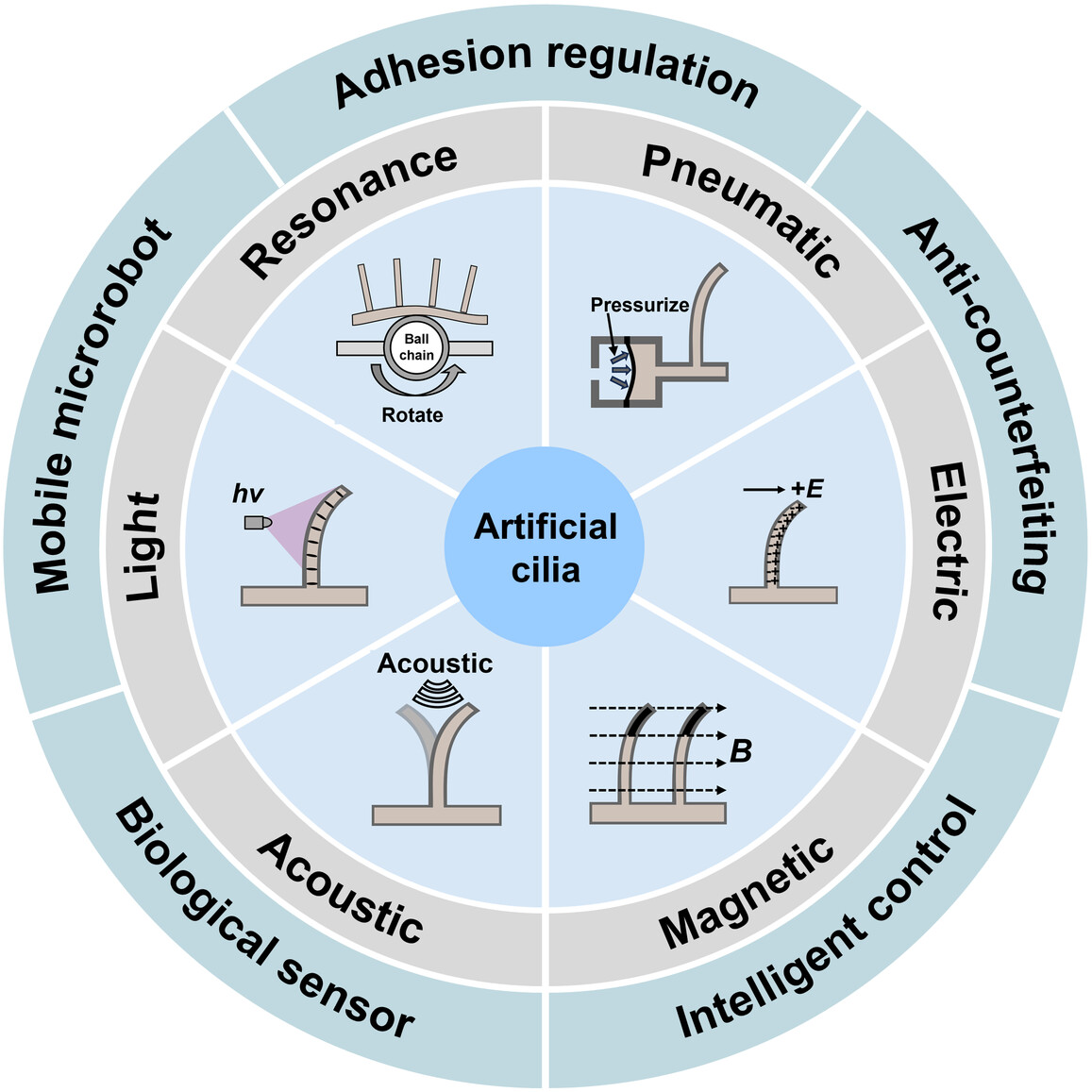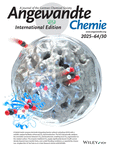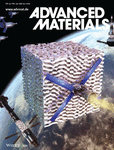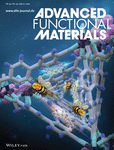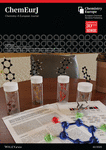Journal list menu
Export Citations
Download PDFs
Cover Picture
Cover Picture
- Page: 733
- First Published: 01 March 2025
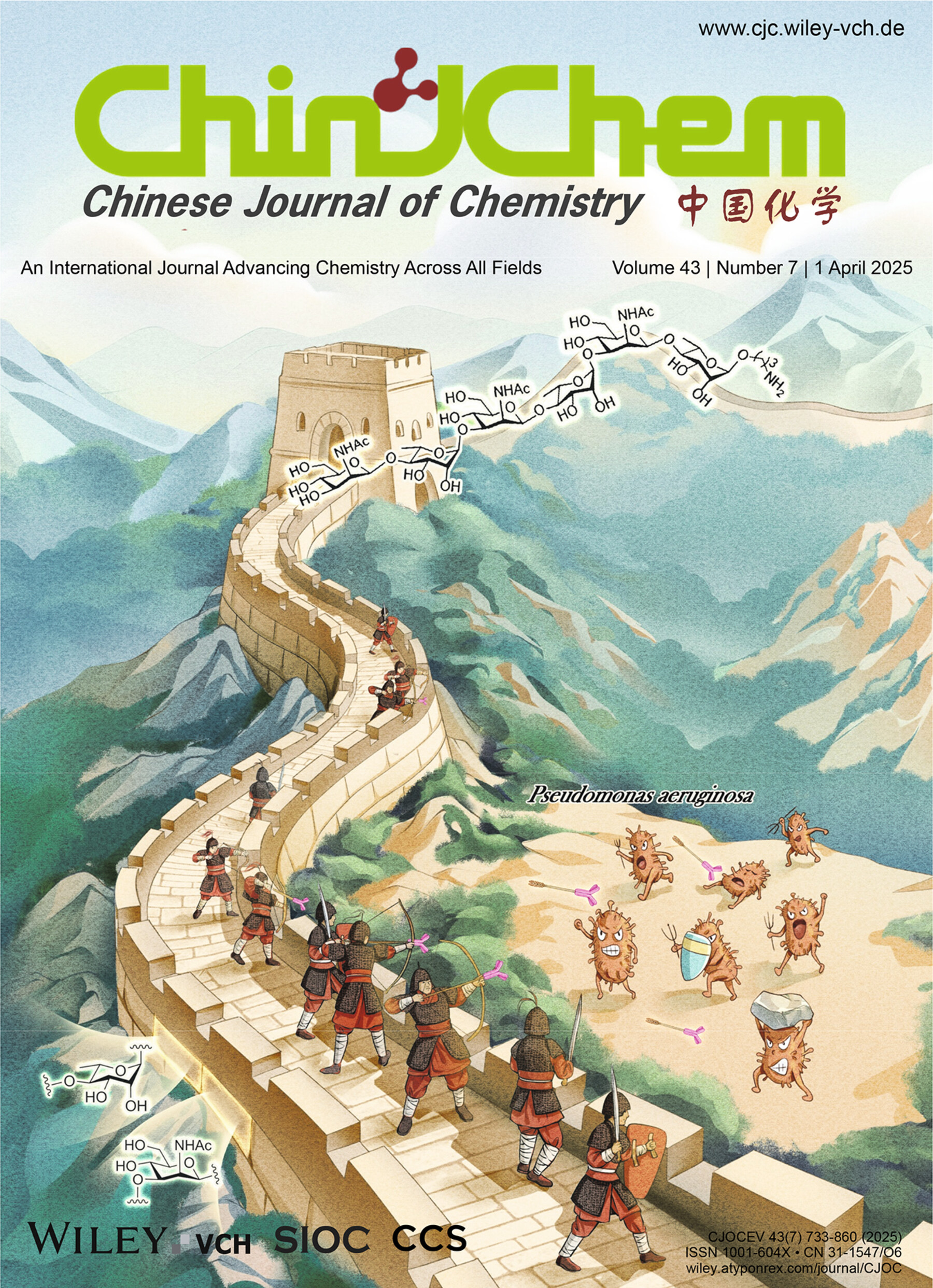
The lipopolysaccharide (LPS) O-antigens of Pseudomonas aeruginosa hold significant promise for the development of carbohydrate-based vaccines. Two hexasaccharides featuring distinct sequences of O-antigen from Pseudomonas aeruginosa serotype O17 have been successfully synthesized using a chemoselective one-pot assembly strategy and a conventional step-wise approach, respectively. This work presents an efficient method for synthesizing O-antigen oligosaccharides, establishing a foundation for the exploration of glycoconjugate vaccines. More details are discussed in the article by Yin et al. on pages 743—749.
Inside Cover Picture
Inside Cover Picture
- Page: 734
- First Published: 01 March 2025
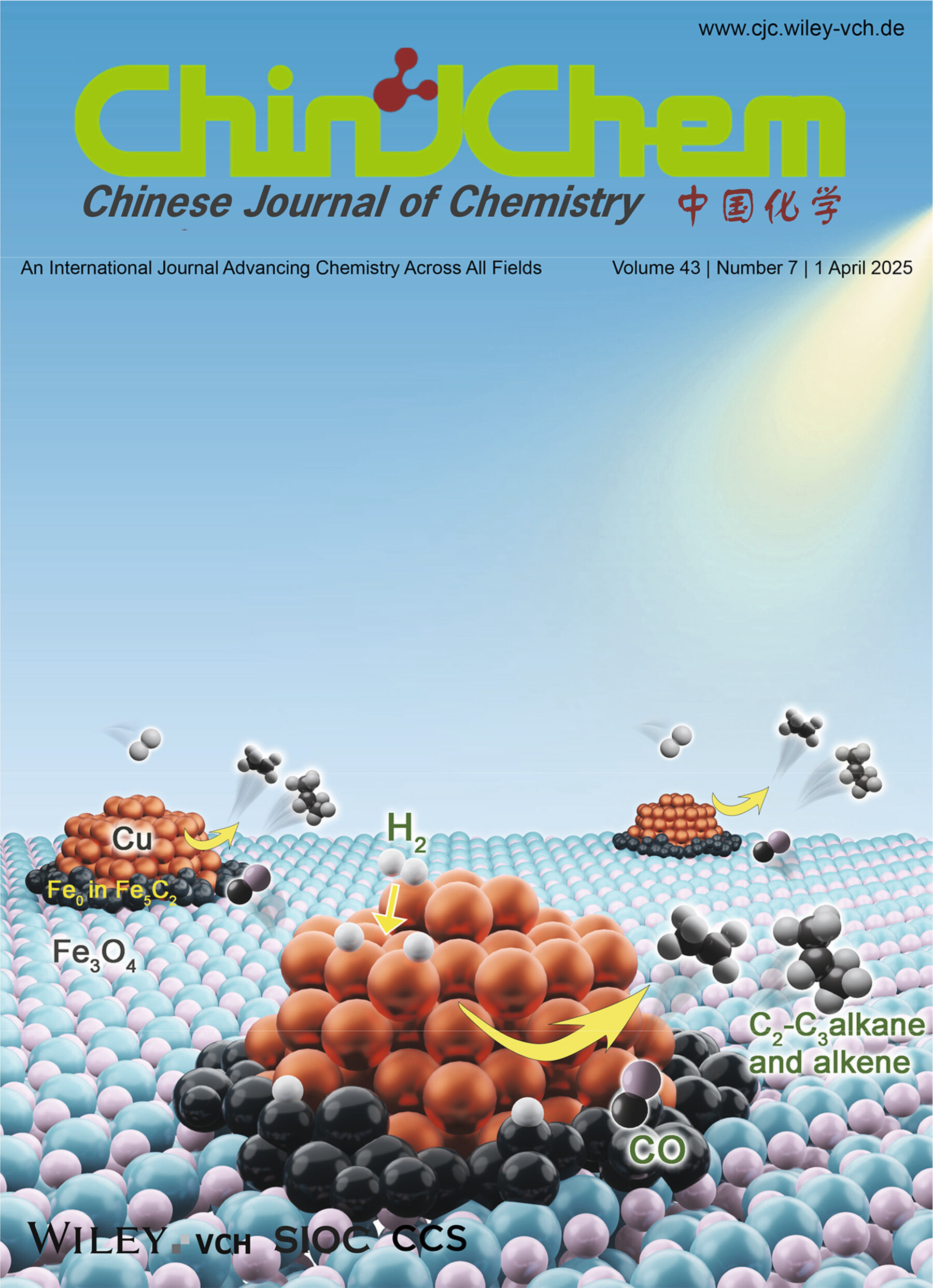
Enhanced H₂ dissociation and H spillover facilitates the in situ generation of Fe0 at the Cu/Fe3O4 catalyst interfaces, which promotes C2–C3 production through a photothermal CO hydrogenation pathway powered by solar energy. More details are discussed in the article by Zhong et al. on pages 791—797.
Contents
Concise Report
Total Synthesis of the Conjugation-Ready Hexasaccharides of Pseudomonas aeruginosa Serotype O17 O-Antigen via One-Pot Glycosylation
- Pages: 743-749
- First Published: 28 December 2024
Assembly of Homochiral Titanium-Oxo Clusters Protected by in situ Generated Chiral Ligands for Enhanced Photoelectrochemical Activity
- Pages: 750-758
- First Published: 31 December 2024
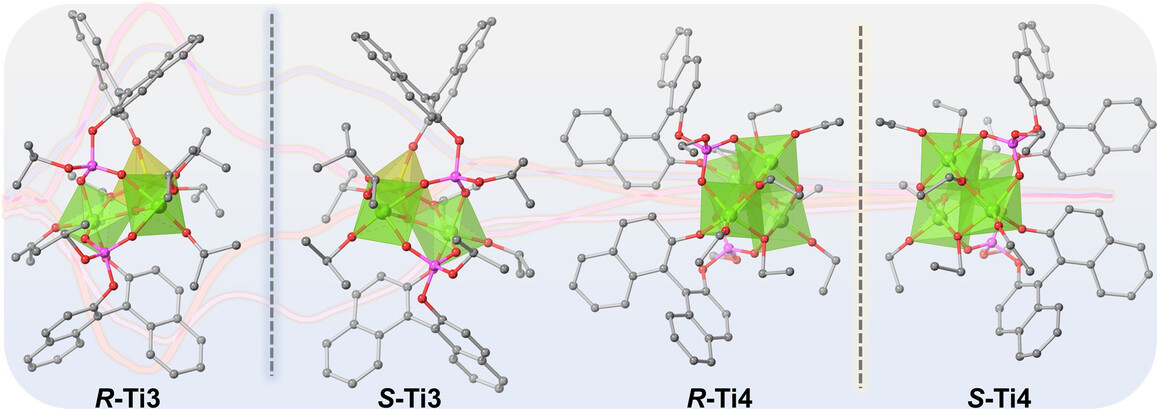
The synthesis of chiral titanium oxo clusters (TOCs) is highly sought-after but remains challenging due to synthetic difficulties and the limited availability of chiral ligands. Herein, we report the isolation of two pairs of enantiomeric TOCs, R/S-Ti3 and R/S-Ti4, through an in situ ligand transformation strategy.
Lotus and Poikilotherm Inspired PPy/PDMS@Nonwoven Fabric Sorbent with Superior Photothermal Effects for the Cleanup of High-viscous Crude Oil
- Pages: 759-768
- First Published: 26 December 2024
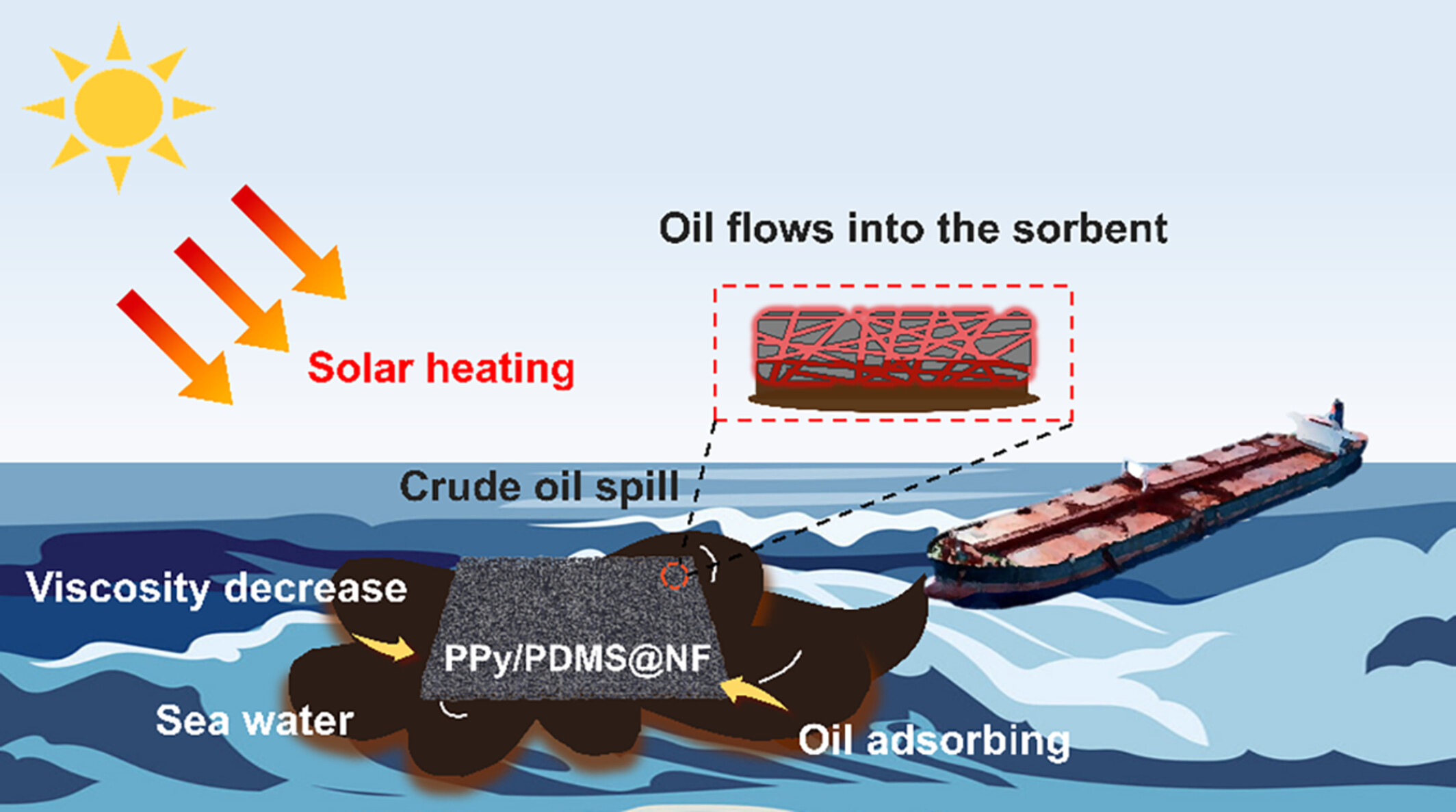
Marine oil spills pose a severe threat to both the ecological environment and economic development. In this study, inspired by the lotus effect and poikilotherm which utilize the solar energy for thermoregulation, we proposed a solar energy-assisted hydrophobic and oleophilic island nonwoven fabric sorbent (PPy/PDMS@NF) for the efficient sorption of high-viscosity crude oil, providing a highly feasible solution for the recovery of oil spills.
Electrochemical Conversion of N-Sulfinylamines to Sulfonimidoyl Fluorides
- Pages: 769-774
- First Published: 26 December 2024
Bioinspired Coordination for Fabricating Self-healing and Injectable Hydrogels with Antibacterial and Immunoregulatory Activities
- Pages: 775-782
- First Published: 31 December 2024

Inspired by dynamic mussel adhesion, we developed a class of injectable, self-healing hydrogels via metal coordination based on histidine-modified hyaluronic acid. The addition of Zn2+ ions enable to fabricate a pH-sensitive network with not only typical dynamic properties like self-healing and injectable capacities but also antibacterial and immunoregulatory effects, showing potential for treating infectious and chronic inflammatory wounds.
Stereoselective Synthesis of 2-Deoxy Glycosides via a Novel 2-O-Resided (o-Alkynyl)benzoate-Initiated 1,2-Sulfur Migration/Glycosylation and Desulfurization Protocol as well as Mechanism Elucidation
- Pages: 783-790
- First Published: 03 January 2025

Stereoselective synthesis of 2-deoxy-glycosides has been achieved through the SMGDS strategy with p-methoxyphenyl 2-O-(o-alkynyl)benzoyl thioglycosides as donors. Mechanistic investigations elucidated hyperconjugation-stabilized oxocarbenium ion as the real operative intermediate, responsible for high 1,2-trans-stereoselectivity in the SMG step through the synergistic influence of thermodynamic, steric, as well as electronstatic effects.
Efficient Photothermal CO Hydrogenation into C2+ Hydrocarbons on in situ Generated Fe0 in Fe5C2 Active Sites via Cu-Promoted Hydrogen Dissociation and Spillover†
- Pages: 791-797
- First Published: 28 January 2025
Catalytic Difunctionalization of Alkenes under Visible Light Irradiation: Synthesis of Iminofuranones
- Pages: 798-804
- First Published: 31 December 2024

We present an eco-friendly method for synthesizing iminofuranones using visible light and 2-bromoanthraquinone as a photocatalyst, with oxygen as the oxidant. Using a DMF and CHCl3 mixed solvent system under ambient conditions, we achieve diastereoselective conversions of 2-vinyl benzamides and alkenyl amides into functionalized iminoisobenzofuranones, enabling late-stage modifications of complex bioactive substrates.
Synthesis of Dendronized Polymers via a “m+n” Grafting-onto Strategy with Reaction-Enhanced Reactivity of Intermediates (RERI) Mechanism
- Pages: 805-813
- First Published: 18 January 2025
Comprehensive Report
Space Charge Improved Poly(Aryl Ether Sulfone) Composite Membrane for Osmotic Energy Conversion
- Pages: 814-822
- First Published: 16 January 2025
Critical Review
Storage Failure Mechanisms and Modifications of Ni-Rich Cathode Materials: From Polycrystalline to Single-Crystal Forms
- Pages: 823-840
- First Published: 31 December 2024
Recent Progress of Artificial Cilia: From Bioinspired Design, Facile Fabrication to Practical Application
- Pages: 841-854
- First Published: 31 December 2024
Back Cover
Back Cover
- Page: 860
- First Published: 01 March 2025
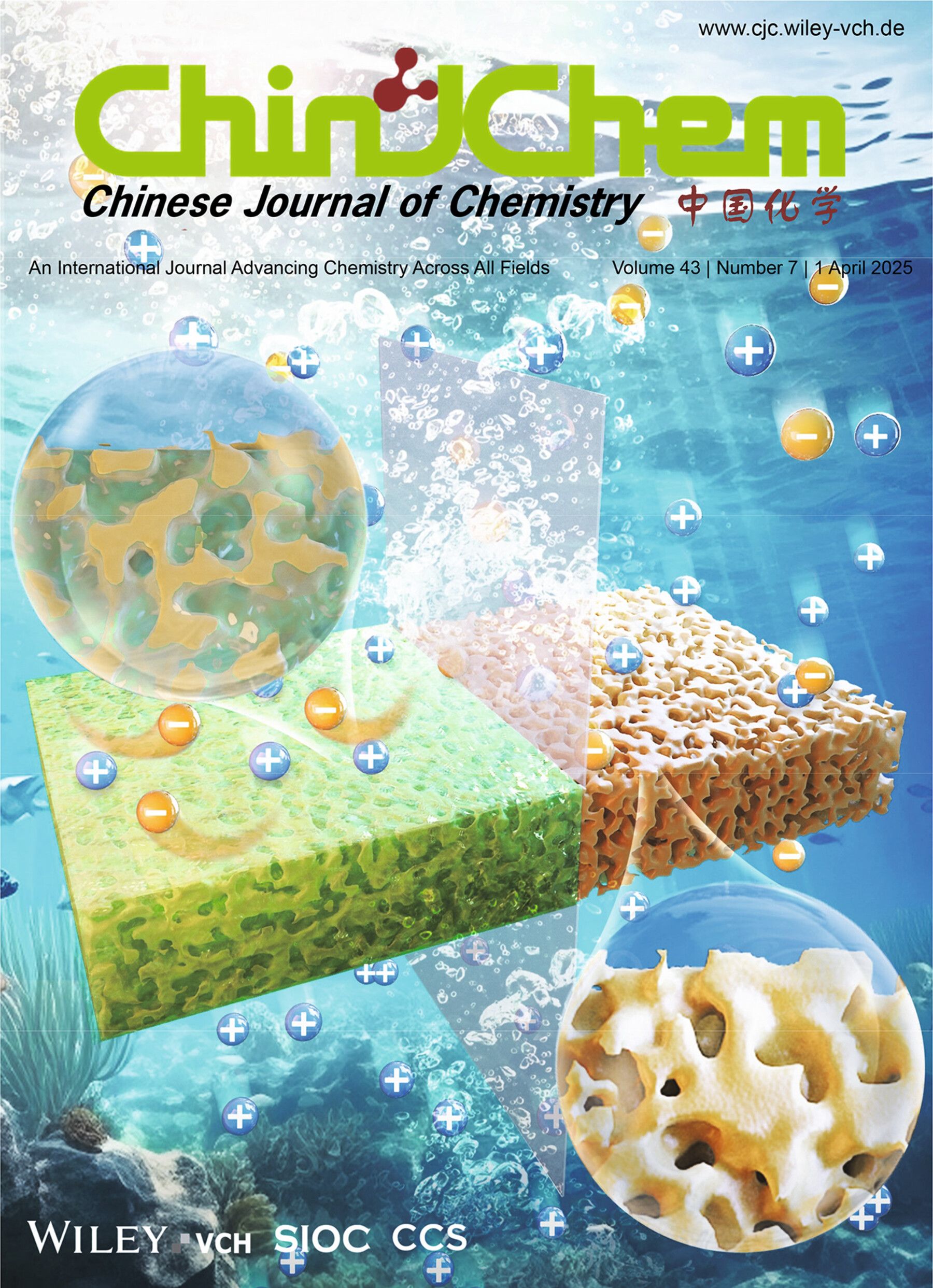
A space charge improved composite membrane for osmotic energy conversion is constructed by inserting sulfonated hydrogels into a 3D porous membrane. The synergistic enhancement of the spatial and surface charges significantly improved the electrostatic interactions between the ions and the ion channels, leading to the enhancement of selectivity, net ionic fluxes, and output performance. More details are discussed in the article by Zhu et al. on pages 814—822.




